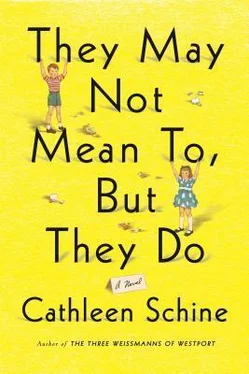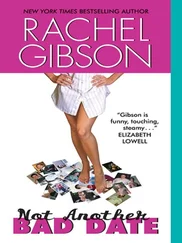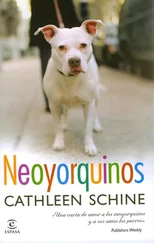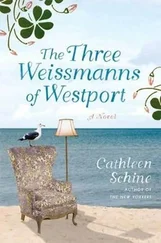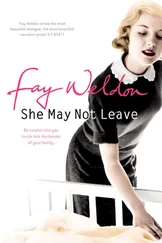She adjusted a stack of unopened envelopes, tilting her head at them, like a curious dog. She opened one envelope and carefully read the marketing materials for a service she would never need or want. She put the torn envelope on the table, placed the glossy marketing pamphlet beside it. She shuffled through the stack of unopened envelopes again. She spread them out like a deck of cards on the table. She touched them, moved them slightly, piled them up again. She sighed. She began to read yesterday’s paper, which was on the chair next to her. She reached for her scissors. She intently cut out an article and laid it on the table. A crumpled tissue fell from her sleeve. She carefully removed the cellophane from a lemon drop, which she then popped in her mouth, placing the sticky cellophane between the torn envelope and the tissue. She spread the pile of unopened envelopes out like a deck of cards on the table again.
She finally broke down and called Danny. “I think someone has to help me. But no one can help me. What should I do?”
“Close the door,” Danny told her. “And never go in again.”
When she called Molly, in tears, Molly said, “That’s all? God, you scared me.”
To them, it was a pile.
To Joy, it was the past and the future jumbled together.
Someday they would understand. They would feel sad the way she felt sad about her own mother, about all the ways she had not been able to understand until she, too, was old. If only everyone could be old together.
“Natalie!” She called her friend immediately. “I just had the most ghastly thought…”
* * *
Joy ran into Karl at the coffee shop regularly now. As soon as Marta saw her, she hauled herself up, said, “Errands,” and lumbered out of the restaurant. It was pleasant for Joy, having someone to sit with, to confide in, someone her own age. And, she admitted this to herself, it was pleasant to spend time with a man.
She ordered her soup and listened to Karl tell one of his stories. She occasionally had to hold her hand up. “Karl,” she would say, “my turn to speak.”
“He has so many stories,” she told Danny that night on the phone. “Very entertaining.”
“You knew him in college? How come I never heard anything about him?”
“Oh, we lost track when I got married. You know how it is.”
Molly called Daniel every Wednesday after his weekly dinner with their mother. She told Freddie she wanted to be supportive, but Freddie suggested she was just trying to cling to Daniel’s devoted-child shirttails.
“Did you have a good time with Mom tonight?” Molly asked her brother. “Did you have a nice dinner?”
“I didn’t go. She said she was too tired.”
“She told you not to come? That doesn’t sound good. Is she sick?”
“No. She said she had lunch with a friend and they walked in the park and she got tired.”
“Yeah? Natalie?”
“No.”
“Well, who, Daniel? You’re being weird and mysterious.”
“That guy. That Karl guy.”
Molly called her mother to tell her the plans she and Daniel had made for Passover. Their first Passover without their father.
“We’re all going to come. We’ll have a real family Passover.”
“At the apartment? Without Daddy?”
“It will give us a chance to be together and honor him,” Molly said. “As a family.”
Joy tried to picture the family gathered around the table without Aaron.
“No, no,” she said. “No. Not this year. Not yet.”
“Daniel and I worked it all out. We’ll take care of the food, of course. You won’t have anything to worry about.”
“It will be too sad,” Joy said. “I think it will be too sad. Everyone there but your father.”
“We’ll all be together , Mom.”
At the coffee shop that night, Joy saw Karl, as she had hoped she would.
“I don’t want this seder,” she told him. “It’s just too soon. Why can’t they wait till next year?”
“Who knows if we’ll be here next year,” Karl said.
“That’s cheerful.”
“Well.”
Joy tried to explain it to him. “Just picture it,” she said. “The whole family. Picture the whole family, picture Danny, Molly, the wives, the grandchildren, me. And no Aaron. It’s like one of those photographs from Russia where they scratch out Trotsky.”
“I guess you could invite more people,” he said. “Dilute it a little, like soup. Invite other people.”
“Other people,” Joy said. It was a brilliant plan. “Other people!”
* * *
The brilliant plan required a good deal of work. Just the thought of the preparations tired her. She was still not herself. She wondered if she’d ever be herself again, but no one must realize how tired she was. It was an effort to get her socks on, to tie her shoes. Her mugs were too heavy to lift. She now drank her tea in her mother’s remaining china teacups.
She still went to work, however. She could not imagine retiring. If she stopped working, her world would screech to a halt, that’s what it felt like to her. And she did enjoy the perplexed expression of Miss Georgia each time Joy plodded into the office, slowly and laboriously, leaning on her ugly cane. Then there was the issue of assisted living. If she had no job, it might seem as though she had no reason to remain in New York, in her apartment. She did not want her children to think it was time to move her. They never would, of course.
Unless they thought it would be better for her. She could hear their concerned voices: She’ll have more company, you know how social she is; She’ll have all her meals taken care of, no more ordering in from that greasy diner; Someone will change the linens; And if she falls …
Joy trudged up the miles of steps at the new building. She unlocked the door of her stunted new office. No, no one would be getting rid of her so easily. There would be no excuse to put her out to pasture. The trip on two buses was far more than she could manage, so she took a taxi to work. The cab fare added up to a good portion of her salary. But every little bit helps, she thought. And it’s my every little bit, I earn it, I work for it. I am a working woman.
She pushed open the door.
There was another person sitting at her computer, at her desk.
“There’s no drawer,” Joy said.
The young woman in Joy’s desk chair looked confused.
“For pencils,” Joy said.
“Can I help you?” the young woman said. She had the sleepless, unkempt, poorly paid aspect of a graduate student. Joy’s heart went out to her.
“I’m Dr. Bergman.”
A blank look.
Joy tapped the nameplate on the door.
“Oh!” the young woman said, smiling. “Did you come to get your things?”
The graduate student, borrowed from CUNY’s student work program, was under the impression Dr. Bergman had retired. She was terribly sorry. She’d just been told to use this office to do conservation work for the museum, though she was actually studying anthropology.
When confronted about the budding anthropologist in Joy’s office, Miss Georgia did not have much to say, other than to assure Joy that the museum was operating with much more efficiency than it ever had before and she knew how loyal Joy was to the institution, which was why she had not hesitated in making these changes for the vitality and energetic future of the conservation department, knowing that Joy would welcome the chance to add to the viability and vigor of the museum.
“By retiring?”
Miss Georgia knew she would understand. She could gather up her boxes and books whenever it was convenient for her.
Joy had the taxi drop her off at the coffee shop. Karl was there, thank god.
Marta jumped up in her lumbering way, patted Joy’s arm with what seemed like relief, and disappeared out the door.
Читать дальше
